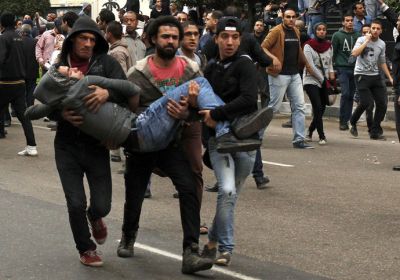
-
 At least a dozen anti-government protesters were shot dead by Egyptian security forces on the fourth anniversary of the uprising that ousted dictator Hosni Mubarak. More than 15 people were killed in Egypt on January 25 in anti-government protests marking the fourth anniversary of the popular uprising that toppled former dictator Hosni Mubarak in 2011. The slaughter marks the bloodiest day of protests since Abdel Fattah al-Sisi was elected president in June, with security forces and plain-clothed police officers reportedly firing at demonstrators.
At least a dozen anti-government protesters were shot dead by Egyptian security forces on the fourth anniversary of the uprising that ousted dictator Hosni Mubarak. More than 15 people were killed in Egypt on January 25 in anti-government protests marking the fourth anniversary of the popular uprising that toppled former dictator Hosni Mubarak in 2011. The slaughter marks the bloodiest day of protests since Abdel Fattah al-Sisi was elected president in June, with security forces and plain-clothed police officers reportedly firing at demonstrators. -
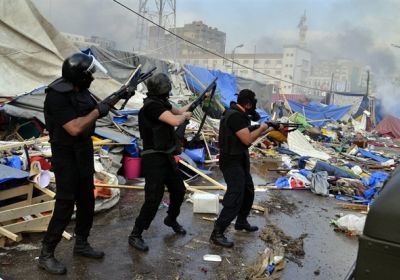 Former British prime minister, and current United Nations’ Middle East “peace envoy”, Tony Blair has an insatiable appetite for cuddling up to despots and tyrants. This time it is Egypt's dictator, Abdel Fattah al-Sisi, responsible for the mass murder of more than 1000 peaceful demonstrators.
Former British prime minister, and current United Nations’ Middle East “peace envoy”, Tony Blair has an insatiable appetite for cuddling up to despots and tyrants. This time it is Egypt's dictator, Abdel Fattah al-Sisi, responsible for the mass murder of more than 1000 peaceful demonstrators. -
An Egyptian court sentenced three Al Jazeera journalists to seven years in prison on terrorism-related charges on June 23. Baher Mohammed, the team’s producer, received an extra three years for possession of ammunition, a charge concerning a souvenir spent shell found in his possession, Morning Star said that day. The verdicts against Australian Peter Greste, Canadian-Egyptian Mohammed Fahmy and Egyptian Baher Mohammed came after a five-month trial that Amnesty International described as a “sham”, calling the rulings “a dark day for media freedom in Egypt”.
-
More than 1000 people from 50 countries have signed the statement launched by Egypt Solidarity in response to mass death sentences imposed by Egypt’s military regime on alleged supporters of the Muslim Brotherhood. On March 24, a court in Minya province condemned 529 people to death for the murder of a police officer in August last year after a trial which lasted just 45 minutes, where defence lawyers were not allowed to speak.
-
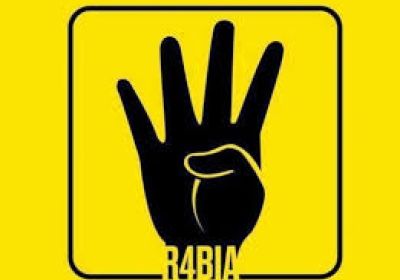 About 200 people rallied in Melbourne on March 27 to express their opposition to the death sentences imposed on 529 Egyptians at a mass trial of alleged members of the Muslim Brotherhood in the city of Minya. Protestors held placards with slogans including “Say yes to democracy and no to brutal dictatorship”, and “Say yes to justice and no to a corrupt and complicit judiciary”. Mahmoud Hegazy told the rally that the charges included membership of an illegal organisation (the Muslim Brotherhood), incitement to violence, and the murder of one policeman.
About 200 people rallied in Melbourne on March 27 to express their opposition to the death sentences imposed on 529 Egyptians at a mass trial of alleged members of the Muslim Brotherhood in the city of Minya. Protestors held placards with slogans including “Say yes to democracy and no to brutal dictatorship”, and “Say yes to justice and no to a corrupt and complicit judiciary”. Mahmoud Hegazy told the rally that the charges included membership of an illegal organisation (the Muslim Brotherhood), incitement to violence, and the murder of one policeman. -
A court in the Upper Egyptian province of Minya has sentenced 529 defendants to death in a trial that has been condemned as “grotesque” by Amnesty International. Take action now and add your name to the statement below statement published at the British-based Egypt Solidarity Initiative. Signatures will be published and delivered to representatives of Egypt's government by April 28, the likely date for an appeal against the sentences. * * *
-
 We interviewed Ali Mustafa live from Egypt on January 24 — the Friday of the weekend marking the third anniversary of the popular uprising that captured the global imagination and put fear in the hearts of despots everywhere. Over a terrible connection and crackling phone line, Ali’s voice was difficult to make out as he described the scene: “The streets are empty, it’s almost eerie and ominous the way the streets are deserted.”
We interviewed Ali Mustafa live from Egypt on January 24 — the Friday of the weekend marking the third anniversary of the popular uprising that captured the global imagination and put fear in the hearts of despots everywhere. Over a terrible connection and crackling phone line, Ali’s voice was difficult to make out as he described the scene: “The streets are empty, it’s almost eerie and ominous the way the streets are deserted.” -
The letter below was published at Egypt Solidarity Campaign, where you can go to add your name. * * * TO: President Adly Mansour; Prime Minister Hazem el Beblawi. We the undersigned, condemn the Egyptian government’s arrest, detention and torture of activists exercising their right to legally and peacefully protest.
-
 The New York Yankees of Egyptian football, Al Ahly, have officially expelled one of its top players, striker Ahmed Abdel Zaher. Did this extraordinary act take place in the aftermath of a heartbreaking loss? No, the team had actually just triumphed 2-0 and Zaher had even scored a goal. Was there an off-field scandal? Did Zaher find himself caught with steroids, or bullying teammates or running a dog-fighting ring? None of that. He was, by all accounts, a model citizen.
The New York Yankees of Egyptian football, Al Ahly, have officially expelled one of its top players, striker Ahmed Abdel Zaher. Did this extraordinary act take place in the aftermath of a heartbreaking loss? No, the team had actually just triumphed 2-0 and Zaher had even scored a goal. Was there an off-field scandal? Did Zaher find himself caught with steroids, or bullying teammates or running a dog-fighting ring? None of that. He was, by all accounts, a model citizen. -
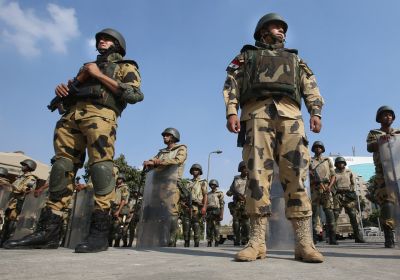
The removal of the Mohamad Morsi government by Egypt's military on July 3 and subsequent bloody repression against Muslim Brotherhood supporters had caused debate on the international left on how to understand the events and what attitude to take to the anti-Morsi protests, the July 3 coup and protests against the military regime. The contribution below is from John Riddell, a Toronto-based activist and historian of the socialist movement.
-
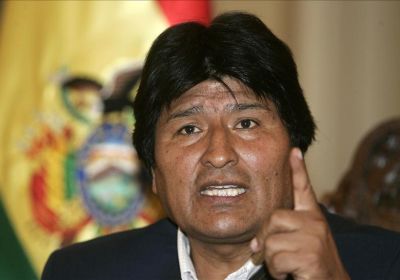
Bolivian President Evo Morales has condemned the violence that has erupted in Egypt and the death of more than 750 people, and expressed solidarity with their families. Morales chaired a public ceremony in the capital and took the opportunity to condemn the violence in the Arab nation, criticising "those countries and powers that boost this kind of genocide". "We vigorously condemn and repudiate these events and send all our solidarity with peoples like Egypt fighting for democracy, for its restoration and unity of their people," Morales said.
-
The streets of Cairo are running red, as Egypt's military carries out a brutal crackdown on supporters of ousted Muslim Brotherhood president Mohamad Morsi. On August 14, after weeks of threats and violent harassment, the Egyptian army moved to shut down protest camps in Nahda Square and outside the Rabaa al-Adawiya in Cairo, where supporters of Morsi have been staging sit-ins since his overthrow on July 3. By the evening, more than 500 protesters had been killed and thousands wounded. The army also killed three journalists in the attack.